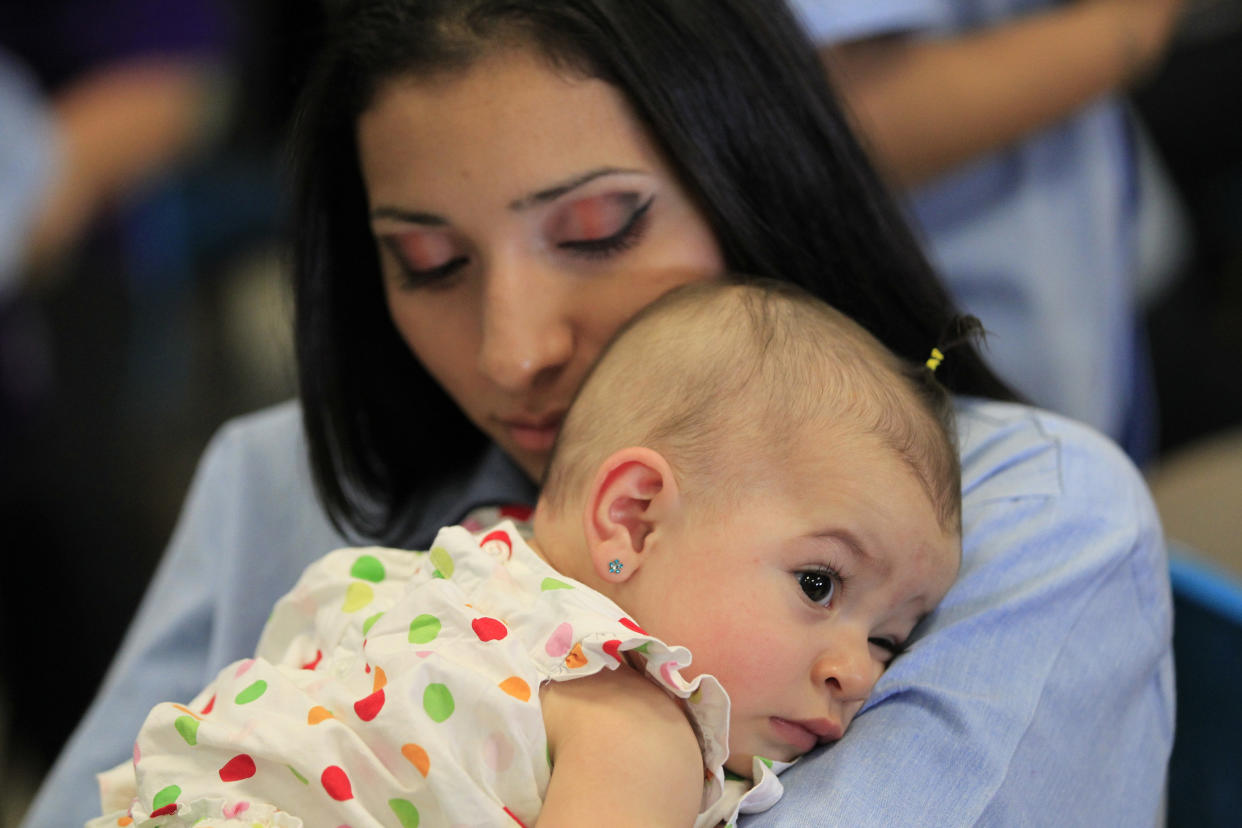Opinion: In-Person Visits With Jailed Parents Are A Child's Right

Across the country, inmates at hundreds of jails and prisons must “visit” with their families via video. Replacing in-person contact with video calls is punitive enough for adults with incarcerated loved ones. For infants and toddlers whose parents are behind bars, the cost of those lost visits is unfathomable.
For nearly 30 years, I’ve regularly gone to see a woman who is incarcerated at New York state’s Bedford Hills maximum security prison for women. I’ve watched as hundreds of young children visit their incarcerated mothers, and I’ve witnessed firsthand the profoundly positive impact those family reunions can have. Although I’m a developmental psychologist and a mother myself, it doesn’t take a professional to recognize the powerful emotions present.
Mother and child have an opportunity to touch each other’s faces, feel the weight of each other’s bodies, take in each other’s smells and sounds, and figure out who they are and who they are becoming. For the incarcerated mothers, these experiences become memories. For the infants and toddlers, these visits serve as building blocks for their growing brains as they develop their sense of self in relation to others. Those moments together define the child’s relationship to the person they’re learning to call “mama.”
But the use of video visits is expanding rapidly in American correctional facilities today. In many places, they don't exist as a supplement to in-person visits. According to a 2015 report, 74 percent of jails that had implemented video call programs had ceased in-person visits entirely.
Private communication companies (Securus and Telmate are among the largest) sign contracts with jails and prisons under which they provide video call services. To state and local governments, these look like money-saving deals because they can reduce the number of corrections officers needed to monitor visits. Jail and prison administrators also argue that video visits will reduce the amount of contraband that makes its way into their facilities ― although contraband enters prisons in a variety of ways and it will likely take more than the end of in-person visits to stop it.
Meanwhile, the buck is passed on to the families of inmates, who pay up to $1.50 per minute for these video calls. That’s an outrageous price, considering that regular Skype-to-Skype calls are free and Skype-to-landline or mobile device calls cost mere pennies for similar usage.
What is worse, parents and children are left to communicate on video. Even visits through Plexiglas dividers, though certainly not as beneficial as face-to-face meetings, offer a more lifelike experience than a video screen. Research has shown that children under 2.5 years old are better able to process information delivered by a person in real life than through video ― a phenomenon call ”video deficit.” In a 2015 article in The Atlantic, developmental psychologist Rachel Barr questioned whether children can really get to know a person when they experience them in just two dimensions.
Even if video visitation provided the child of an incarcerated parent with the same psychological benefits as in-person communication, the technology has a poor track record. Adults who’ve used prisons’ video visit programs report tech problems, including numerous sound cuts and freezes. Research has shown that these kinds of delays or lags in interaction can confuse young children.
If a child has regular in-person visits with an incarcerated parent, the occasional video call can support that already established relationship, particularly on days when the child is unable to make the trip to the facility. But video visitation should not supplant in-person visits.
You don’t have to be an expert to know parental contact is essential for a child’s healthy growth and development. Our jail and prison systems must strike a balance between punishing those who have been found guilty of crimes and protecting the rights of children to spend time with their incarcerated parents. Primal bonds are not to be treated lightly. Children have the right to in-person visits with their parents.
Virginia Casper is a developmental psychologist and senior faculty member in the Graduate School at Bank Street College of Education in New York City.
Love HuffPost? Become a founding member of HuffPost Plus today.
This article originally appeared on HuffPost.

